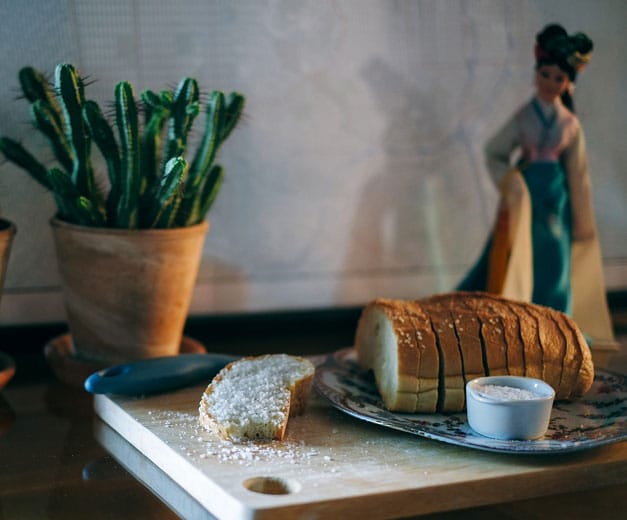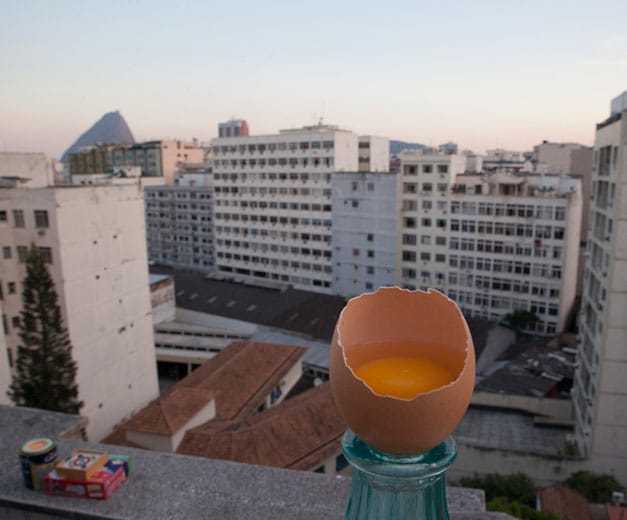With its rich, profound history – its roots lie in epics and at the foundation of modern civilization, after all – the Greek language is ripe for and with metaphor, particularly of the food-related variety. Folk sayings and proverbs have a prominent place in colloquial language and everyday life, and they are at turns humorous, instructive and ironic. And sometimes they are all three at once.
Το μήλο κάτω από τη μηλιά θα πέσει. To milo kato apo ti milia tha pesei. “The apple will fall under the apple tree.” Just like the English expression.
Αγάλα-αγάλι γίνεται η αγουρίδα μέλι. Agali-Agali ginetai i agourida meli. “Slowly, slowly the sour grape becomes honey.” All things require a great deal of time to mature, be they people or situations. Patience is a virtue.
Example: “Everyone was expecting the new football player to play better in the first few games. Agali-Agali ginetai i agourida meli.”
Τον πιάσανε στα πράσα. Ton piasane sta prasa. “They caught him in leeks.” He was caught red-handed.
Example: “George and Maria got divorced because Maria ton epiase sta prasa with her best friend.”
Μπουκιά και συγχώριο. Boukia kai syghorio. “One bite and all is forgiven.” So delicious that you ask for forgiveness for every bite you have (as you would before you go to Holy Communion). So delicious I think I’ve died and gone to heaven.
Example: “Have you seen Anna, the new girl in the building? She is boukia kai syghorio.”

Υπάρχουν και αλλού πορτοκαλιές που κάνουν πορτοκάλια. Yparchoun kai allou portokalies pou kanoun portokalia. “There are elsewhere orange trees that make oranges.” Used to comfort someone going through a breakup or some disappointment in his or her love life. There are other fish in the sea.
Example: “Why do you cry about Takis? Yparchoun kai allou portokalies pou kanoun portokalia.”
Κάθε πράγμα στον καιρό του κι ο κολλιός τον Αύγουστο. Kathe pragma ston kairo tou kai o kollios ton Avgousto. “Everything in time and the mackerel in August.” There is a proper time for everything to be done.
Φάε λάδι και έλα βράδυ. Fae ladi kai ela vrady. “Eat olive oil and come in the evening.” A come-on, referring to olive oil’s aphrodisiacal stimulant qualities; you will enjoy a night of passion.
Τι είναι ο κάβουρας, τι το ζουμί του. Ti einai o kavouras, ti to zoumi tou. “What is the crab, what is its broth.” Something is rare or insufficient in quantity (just as crabs have little “juice”).
Οπου ακούς πολλά κεράσια κράτα μικρό καλάθι. Opou akous polla kerasia krata mikro kalathi. “Where you hear many cherries, keep a small basket.” When you hear many promises, do not expect much.
Example: “Did you listen to the Minister’s speech for the upcoming elections? Opou akous polla kerasia krata mikro kalathi.”
Βράσε ρύζι. Vrase ryzi. “Boil rice.” Indicates indifference to something that has been done. Alternatively, a reaction towards misfortune. An expression of deep frustration, impasse.
Example: “If I fail the exams, vrase ryzi.”
Περί ορέξεως κολοκυθόπιτα. Peri orexeos kolokythopita. “Concerning appetite, pumpkin pie.” There’s no accounting for taste. Also used ironically for those who prefer unimportant and trivial matters over those that are meaningful or great.
Φάγαμε ψωμί και αλάτι. Fagame psomi kai alati. “We ate bread and salt.” We have a lot of history together. We go way back.
Example: “I was in the army with Aris. Fagame psomi kai alati.”

Με πορδές δεν βάφονται αυγά. Me pordes den vafontai avga. “With farts you cannot dye eggs.” With inadequate resources and care, the results will be inadequate too.
Λέει τα σύκα- σύκα και τη σκάφη- σκάφη. Leei ta syka-syka kai ti skafi-skafi. “He calls figs figs and troughs troughs.” He tells it like it is.
Κάποιο λάκκο έχει η φάβα. Kapoio lakko ehei i fava. “There’s a pit in the fava.” This is a setup.
Example: “Something is wrong here, kapoio lakko ehei i fava.”
Του ήρθε λουκούμι. Tou irthe loukoumi. “It arrived like Turkish delight.” It’s a blessing. Could be used to describe something that fits very well or is useful.
Petros Ladas contributed research to this story.
 April 29, 2014 Chinese Food Idioms
April 29, 2014 Chinese Food Idioms
In a country where the traditional way to greet someone translates to “Have you eaten […] Posted in Shanghai April 23, 2014 Spanish Food Idioms
April 23, 2014 Spanish Food Idioms
You are what you eat, as the saying goes. Is it any surprise, then, that food figures so […] Posted in Barcelona February 14, 2014 Rio’s Food Idioms
February 14, 2014 Rio’s Food Idioms
You are what you eat, as the saying goes. Is it any surprise then that food figures so […] Posted in Rio
Published on April 03, 2014
Related stories
April 29, 2014
ShanghaiIn a country where the traditional way to greet someone translates to “Have you eaten yet?” (你吃了吗? Nǐ chīle ma?), it should come as no surprise that food idioms permeate everyday language in China. Chinese culture also prizes indirectness, so idioms are the perfect way to portray deep meaning without being overt. Frustrating for cross-cultural…
April 23, 2014
BarcelonaYou are what you eat, as the saying goes. Is it any surprise, then, that food figures so largely in popular culture all over the world? In Spain, we have a veritable cornucopia of food-related expressions. Here’s a taste: Dar una torta, “to give a cake.” To slap someone. But darse una torta, “give a…
February 14, 2014
RioYou are what you eat, as the saying goes. Is it any surprise then that food figures so largely in popular culture all over the world? In Rio, food and culture go hand in hand like Romeu and Julieta (for Brazilians, that refers to white cheese and guava paste, respectively, which are such a tasty combination…


















































































